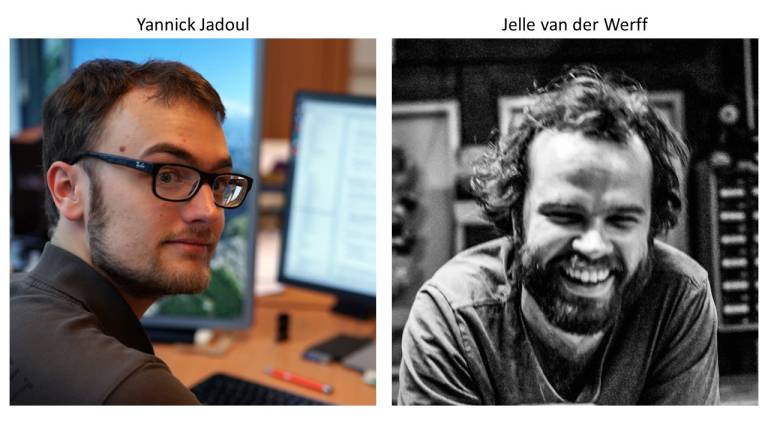Speech Science Forum - Yannick Jadoul & Jelle van der Werff
09 May 2024, 4:00 pm–5:00 pm

Python for the speech sciences: Processing audio and rhythm data with Parselmouth and thebeat
Event Information
Open to
- All
Availability
- Yes
Organiser
-
Rana Abu-Zhaya
As the amount of collected research data and the importance of statistical and computational analyses grow, processing data swiftly and efficiently becomes increasingly important in many scientific fields. The speech sciences are no exception, and just like in many other fields, using scripting languages such as Python or R to process and analyse data is now an essential scientific skill. In the speech sciences, and in particular in phonetics, the Praat software package remains the key tool for analysing human speech. It provides a wide range of acoustic analyses, such as estimating the fundamental frequency or the harmonics-to-noise ratio. A little over five years ago, we first released the Python package Parselmouth. Parselmouth provides easy and intuitive access to all Praat functionality from Python. It makes it easier to directly integrate this functionality with other tools and libraries available for Python, and enables new scientific workflows and experiments through this interactive access to Praat from Python. Beyond acoustics and phonetics, timing also plays an essential role in speech and communication. Last year, we created and released thebeat, a Python package for creating, analysing, and visualising rhythms and timing information. In thebeat, we collected some of the most widely used methods in timing research, and made them available in Python. thebeat aims to save time for researchers and helps avoid commonly-made mistakes by providing a tried-and-tested set of implemented algorithms. thebeat provides a common foundation for working with temporal sequences, and can be extended and customised by other researchers. In our talk, we will present these two Python packages: What functionality do they provide, and how can they assist in analysing speech data? After introducing the packages, we will showcase several studies in which these tools have provided valuable, and sometimes crucial, contributions to research methodology, and explore the potential of Parselmouth and thebeat to contribute to new research and experiments in the speech sciences.
Parselmouth and thebeat are both freely available on GitHub: https://github.com/YannickJadoul/Parselmouth; https://github.com/Jellevanderwerff/thebeat
This event will be hosted online: https://ucl.zoom.us/j/97718702895?pwd=UzhOcHlwMTd4NWZFWGVTNGZwTndCQT09
About the Speakers
Jelle van der Werff
PhD student at Sapienza University of Rome
Jelle van der Werff is a PhD student in the lab of Prof. Andrea Ravignani at Sapienza University of Rome. His PhD is focussed on investigating the role isochrony plays in the evolution of human rhythm. In addition to his interest in human temporal perception, he is dedicated to finding novel methods for investigating timing and rhythmicity that can be applied across species.
Yannick Jadoul
Postdoctoral researcher at Sapienza University of Rome
Yannick Jadoul is a postdoctoral researcher in the lab of Prof. Andrea Ravignani at Sapienza University of Rome. With a background in computer science and artificial intelligence, his research interests lie in the computational modelling of speech, rhythm, and animal communication.
 Close
Close

